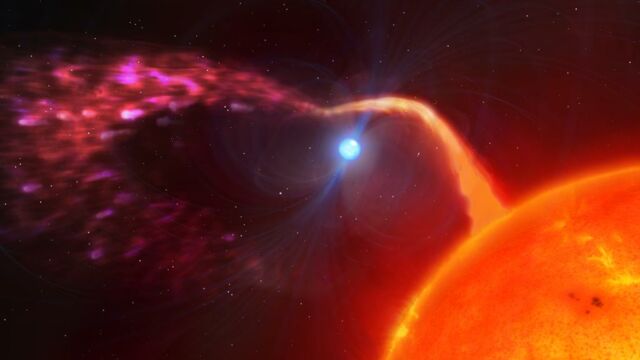A team of astronomers, has observed a record-breaking spin rate for a confirmed white dwarf star the size of our own planet. The group, led by astronomers from the University of Warwick, reports that the white dwarf was seen completing a full rotation once every 25 seconds.
Discover our latest podcast
Extremely Rare
The report, published in the journal Monthly Notices of the Royal Astronomical Society: Letters, has been praised as a very rare example of a magnetic propeller system.
According to a news release on the findings, the propeller system is when a white dwarf pulls gaseous plasma from a nearby companion star and fling it into space at around 3,000 kilometres per second.
Co-author Professor Tom Marsh, from the University of Warwick Department of Physics, said:
It’s only the second time that we have found one of these magnetic propeller systems, so we now know it’s not a unique occurrence. The second discovery is almost as important as the first as you develop a model for the first and with the second you can test it to see if that model works.
Extraordinary Star
According to the astronomers, this recent discovery is the second magnetic propeller white dwarf to be identified in more than 70 years.
Lead author Ingrid Pelisoli of the University of Warwick physics department said:
The rotation is so fast that the white dwarf must have an above average mass just to stay together and not be torn apart. It is pulling material from its companion star due to its gravitational effect, but as that gets closer to the white dwarf, the magnetic field starts to dominate.
It is thought that the previous confirmed spin rate record of a white dwarf is barely overly 29 seconds. If it helps, it takes Earth 24 hours to complete one rotation.
The star that was observed by the Warwick team has been named J0240+1952 for short, is the size of the Earth but is thought to be at least 200,000 times bigger.















